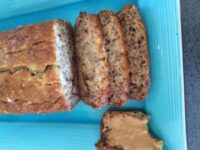When food takes center stage, such as at a Thanksgiving gathering, a birthday party, or a team dinner, many athletes need to be reminded that overeating is part of normal eating. That is, even “normal eaters” overeat.
Here is Ellyn Satter’s definition of “normal eating”. Ellyn is the author of Secrets of Feeding a Healthy Family (a book every parent should read). She offers helpful food-management information on her website, www.EllynSatterInstitute.org
What is normal eating?
- Normal eating is going to the table hungry and eating until you are satisfied. It is being able to choose food you like and eat it and truly get enough of it—not stopping eating just because you think you should.
That is, did you stop eating breakfast today because the oatmeal in your bowl was all gone? Or were you truly satiated? If you are “feeling hungry all the time,” you likely ARE hungry; your body is requesting more fuel. Trust it. - Normal eating is being able to give some thought to your food selection so you get nutritious food, but not being so wary and restrictive that you miss out on enjoyable food.
Have you put yourself in food jail and banned “fun foods” like cookies, cupcakes, and chips, out of fear of over-eating them. Some “fun food” in the midst of a holiday season or a pandemic can be, well, fun! - Normal eating is giving yourself permission to eat sometimes because you are happy, sad, or bored, or just because it feels good.
Sometimes we need a hug from food, despite being not hungry. One bowl of ice cream will not ruin your waistline nor your health forever. That said, routinely overindulging in ice cream as a means to distract yourself from life’s pain will not solve any problem. - Normal eating is mostly three meals a day, or four or five, or it can be choosing to munch along the way.
Most athletes require fuel at least every 3 to 4 hours. Those who “graze all day” commonly under-eat at meals. If you stop eating because you think you should, not because you are satiated, you will feel the urge to graze. - Normal eating is leaving cookies on the plate because you know you can have some again tomorrow, or it is eating more now because they taste so wonderful.
If you are banning fun foods from your house because you can’t eat just one cookie, think again. Denying yourself permission to enjoy a few cookies boosts the urge to eat the whole plateful. I call that “last chance eating.” You know, “last chance to have cookies, because tomorrow I am back on my cookie-free diet.” Try planning in forbidden foods every day. They will soon lose their power. - Normal eating is overeating at times, feeling stuffed and uncomfortable. And it can be undereating at times and wishing you had more. Normal eating is trusting your body to make up for your mistakes in eating.
Yes, even normal eaters overeat. It’s normal to have too much Thanksgiving pie, birthday cake, and Sunday Brunch. Your body will simply take longer to get hungry again. You will not instantly “get fat.” Hunger is your body’s way of telling you it has burned off what you gave it, and it is ready again for more fuel. - Normal eating takes up some of your time and attention, but keeps its place as only one important area of your life.
If you are spending 90% of your time thinking about food, you are likely hungry 90% of the time. If you eat until you are satisfied, you will stop incessantly thinking about food. - In short, normal eating is flexible. It varies in response to your hunger, your schedule, your proximity to food, and your feelings.
Many athletes very rigidly eat the same foods every single day. A sports nutritionist can help add variety (more nutrients), flexibility, and more joy to eating. Food can and should be one of life’s pleasures, both when training and in the midst of the pandemic.
Sports nutritionist Nancy Clark, MS, RD counsels both casual and competitive athletes in her private practice in Newton MA., She helps them learn how to eat competently to enhance performance. Her best-selling Nancy Clark’s Sports Nutrition Guidebook is a helpful resource. For more information, visit www.NancyClarkRD.com.

